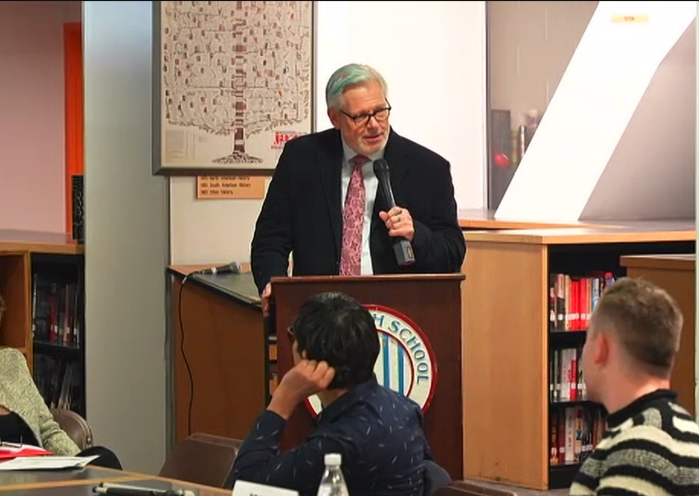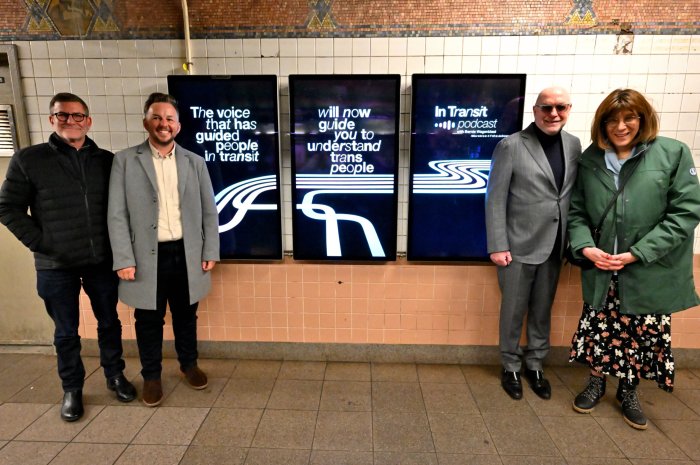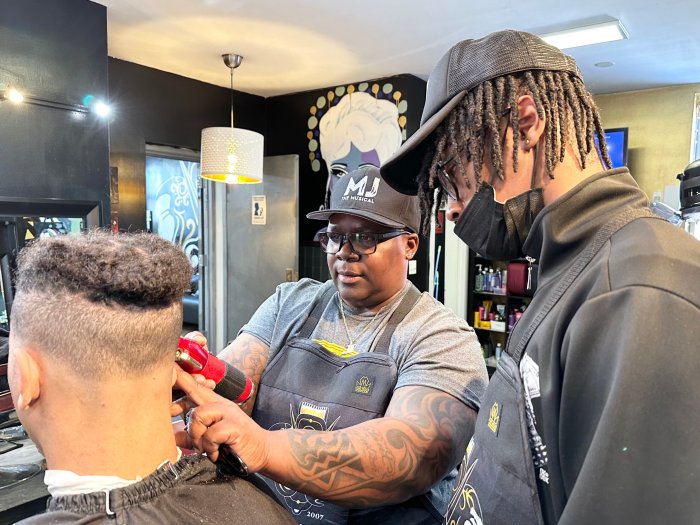On January 6, in the way things happen now, a post popped up on the Facebook page of gay Manhattan psychotherapist Bob Bergeron: “Has anyone heard from Bob?” For the previous several days, a parade of regular clients had gone to his apartment in North Chelsea, out of which he worked, rang the bell, and… nothing.
Thursday evening — the night before the Facebook post — a neighbor heard the instantly recognizable, though mercifully rare, tromp of firemen’s boots coming up the stairs. They left sometime later with a body, leaving a trail of unanswered questions behind them, scattered like breadcrumbs for the unnerved residents of the building, the devastated clients, bewildered colleagues, a grief-stricken family back in Arizona, and those in a whisper chain in the more-village-than-you’d-think-still-possible community of midlife gay men in New York.
I knew Bob back in the old days when we were both staffers at Gay Men’s Health Crisis. He seemed impossibly glamorous and unapproachable to me — tall, surfer blond, flashing a lupine smile. But then he’d just say a chipper “Hi!” unexpectedly and it just didn’t compute. Wait, this was the kind of guy who had it all, who could have anyone, who scorned and spurned and danced with his shirt off. Or so I thought. But the casual and authentic ‘Hi!” overturned the brittle but unquestioned pecking order of the urban gay male: you got the pecs, you get to pick.
Bob was something different, kind of like the perpetually single Mary Richards in the newsroom at WJM. You noticed her because she was just so luminous with that smile and that figure, but then this cascade of insecurities tumbled out of her mouth, making you laugh and fall a little bit in love with her right then.
Bob committed suicide sometime in the first week of January. After having spent 20 years on the frontlines of the HIV epidemic among gay men, first at AIDS Project Los Angeles and then at “the Crisis,” as we staffers sometimes jokingly called GMHC, where he rose to become the director of prevention and helped create truly innovative programs to stem the tide of HIV and to build gay men’s sense of self-worth at the same time.
He went on to open a private practice as a therapist, heading to the gym most mornings for the ritual exercise-cum-coffee klatch, then back to the office to listen, engage, question, cry, and laugh with members of his tribe. He was beloved by many for his warmth and his optimism.
All suicides are shocking things. Another’s hidden life of “quiet desperation” is suddenly revealed in stark relief. But when the person who takes their own life seems from the outside to have so much going for them, it strikes a sort of cold terror of “there but for the grace of God go I.”
Scheduled for a February, 2012 release, Bob’s first book, “The Right Side of Forty: The Complete Guide to Happiness for Gay Men at Midlife and Beyond,” from Magnus Books has now been delayed as the publishers wrestle with how to market an “aging well” book whose author killed himself. (Editor’s note: Subsequent to publication of this story, Magnus Books’ Don Weise told Gay City News that publication of Bergeron’s book had been canceled.)
As a therapist who also works mainly with the gay male community in Manhattan, I am aware of the rarely stated but often hovering question in new clients’ eyes, “What can you offer me? Have you figured this out? Can tell me how you did it, or are you just pretending?”
A romantic relationship ended for Bob about a year and a half ago, according to a close friend. Was he lonely? Didn’t he love himself? Weren’t looks and success and friends and family enough?
I don’t subscribe to the if-you-haven’t-figured-something-out-then-shut-up-about-it school. I try to position myself a fellow traveler with my clients, gay and straight alike. We are all trying to figure it out. I have particular counseling skills to help a person on that journey, regardless of where I am today in the seesaw of “love myself or hate myself,” “single or coupled,” “feast or famine.” People used to say that all male homosexuals would wind up drunks or suicides. In the past few decades, that has transformed into all gays will become drug addicts or get AIDS, which implies the same thing — a self-hatred and disgust that becomes self-destruction.
Well, listen to me: Fuck. That.
I am more than my challenges. Bob was more than the title of his book or the way his life ended, for whatever concatenation of reasons that we can never know. Was he just a late-breaking victim of the AIDS crisis or some demon of internalized homophobia? Had he wandered too far down some dark path of obsession?
In the end, what matters to me most about Bob is that he said his bright ‘Hi!” first. He broke down the concrete wall between gay men that seeks to have us treat each other as, let’s face it, our fathers all too often treated us — as rejectable. Good for you, Bob. You tried. You were ambitious, proud, sunny, affable, troubled, insecure, and 49 years old when you died. I am so, so sorry for whatever pain drove you to this end. I am sorry for you as a gay man and as a human being.
Bob’s words from his upcoming book:
In all my years of clinical work, I have never encountered a fifty-year-old gay-male client complain that he feels invisible in non-gay environments in his life, such as in his work or with his parents or family. But I consistently hear fifty-year-old men say that they feel invisible in the all gay-male environments where much of their lives unfold. No matter how successful and rewarding their lives, even gay men who have created meaningful friendships and romantic relationships with other men still become confused because other gay men treat them differently as they enter their forties and beyond. In my clinical practice, I have seen that until men resolve their confusion and unhappiness about how other gay men relate to them now that they are older, the sense of loss and isolation they feel leaves them ill-equipped to deal with these other issues of aging common for all older men and women.
We usually only quote the first half of Thoreau’s statement and not the whole thing. “Most men lead lives of quiet desperation and go to the grave with the song still in them.” Bob sang his song. It echoes down Eighth Avenue today.
Christopher Murray, LCSW, can be reached at christophermurray.org. The family requests that donations in honor of Bob Bergeron, LCSW, be made to Gay Men’s Health Crisis at gmhc.org.

































